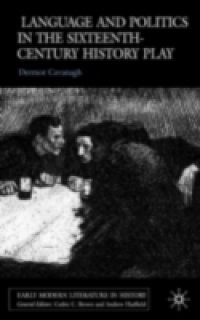Language and Politics in the Sixteenth-Century History Play presents a new reading of the form and politics of historical drama from John Bale to William Shakespeare. It argues that the genre was theatrically diverse and ideologically various and that it contributed to a debate concerning the implications of disorderly language. The book examines how history plays dramatise and use unruly speech for the purpose of political enquiry: this includes their representation of rumour, sedition, treacherous words, and corrupt counsel. It emphasizes the radical possibilities of the form and content of historical drama by focusing on a range of plays: Bale's King Johan, Norton and Sackville's Gorboduc, Robert Greene's James IV and Shakespeare's King John, Richard II, and Henry V. Shakespeare is shown both to draw upon and to extend the critical potential of the history play so popular among his contemporaries.

